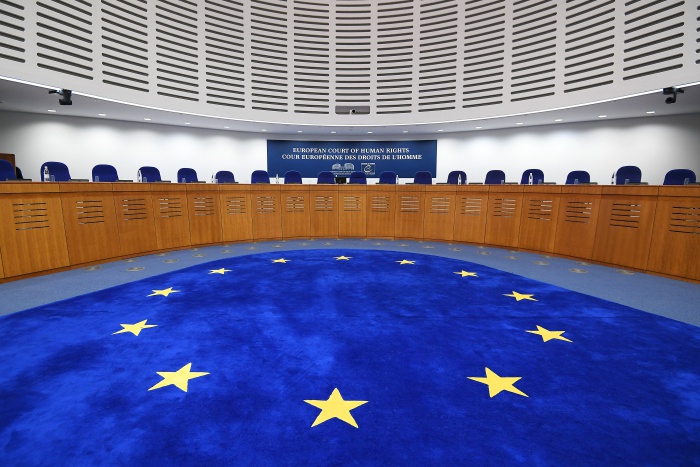The Grand Chamber of the European Court of Human Rights (ECtHR) will examine the case of former teacher Yüksel Yalçınkaya, who was first dismissed from his job and later arrested in 2016 over alleged links to the Gülen movement, the Stockholm Center for Freedom reported.
According to a press release from the Strasbourg court, the chamber to which the Yalçınkaya case had been assigned relinquished jurisdiction in favor of the Grand Chamber on May 3.
Yalçınkaya was convicted of membership in a terrorist organization and sentenced to six years, three months’ imprisonment in 2017 by the Kayseri 2nd High Criminal Court. The court based its ruling on his alleged use of the ByLock app, membership in a labor union and an association affiliated with the Gülen movement and having an account at Bank Asya.
The Turkish Constitutional Court also rejected as inadmissible an application lodged by Yalçınkaya.
Following a coup attempt in 2016 the Turkish government accepted such activities as having an account at the now-closed Bank Asya, one of Turkey’s largest commercial banks at the time; using the encrypted messaging application ByLock, which was available on Apple’s App Store and Google Play; and subscribing to the Zaman daily or other publications affiliated with members of the movement, as benchmarks for identifying and arresting alleged followers of the Gülen movement on charges of membership in a terrorist organization.
Turkish President Recep Tayyip Erdoğan has been targeting followers of the Gülen movement, a faith-based group inspired by Turkish cleric Fethullah Gülen, since the corruption investigations of December 17-25, 2013, which implicated then-prime minister Erdoğan, his family members and his inner circle.
Dismissing the investigations as a Gülenist coup and conspiracy against his government, Erdoğan designated the movement as a terrorist organization and began to target its members. He intensified the crackdown on the movement following the coup attempt on July 15, 2016 that he accused Gülen of masterminding. Gülen and the movement strongly deny involvement in the abortive putsch or any terrorist activity.
The United Nations Human Rights Committee and the Working Group on Arbitrary Detention (WGAD) have so far considered a total of 18 cases concerning individuals detained on the basis of their alleged links to the Gülen movement. In 16 of those cases, WGAD found a Category V violation (deprivation of liberty, violation of international law, discrimination based on political or other opinion). The significance of these cases is that they point to a clear pattern of arbitrary detention and hence deprivation of liberty despite the absence of criminality on the part of the complainants. The cases also underline that the complainants are arbitrarily deprived of their liberty for the exercise and enjoyment of their fundamental rights.
In March 2021 the ECtHR posed a series of questions to the Turkish government in the Yalçınkaya case in relation to the principle of legality and no punishment without law under Article 7 of the European Convention on Human Rights (ECHR).
The questions included why domestic judicial authorities concluded that ByLock was exclusively used by members of the Gülen movement; whether the evidence was obtained lawfully; the evidentiary basis of the courts finding that the applicant had used the app; and if the applicant’s right to have confidential communication with his lawyer was restricted due to emergency decree measures that required surveillance of such meetings.
Article 7 of the ECHR provides that “No one shall be held guilty of any criminal offense on account of any act or omission which did not constitute a criminal offense under national or international law at the time when it was committed.” The principle is an essential component of the rule of law that may not be derogated from even in times of emergency under Article 15 of the ECHR. Any criminal offense and the associated sanctions must be clearly defined by law, and an individual must understand from the wording of the law, and with assistance from the courts, if necessary, the consequences of his actions and know which acts and omissions will make him criminally liable.
The latest SCF report, titled “Rule of law(lessness) in Erdoğan’s Turkey: Violation of the principle of legality and no punishment without law in post-coup trials,” focuses on how criminal prosecutions and trials conducted on charges of terrorism since the coup attempt are devoid of any legal grounds.
Following the abortive putsch, the Turkish government declared a state of emergency and carried out a massive purge of state institutions under the pretext of an anti-coup fight. More than 130,000 public servants, including 4,156 judges and prosecutors, as well as 29,444 members of the armed forces were summarily removed from their jobs for alleged membership in or relationships with “terrorist organizations” by emergency decree-laws subject to neither judicial nor parliamentary scrutiny.
A total of 319,587 people have been detained and 99,962 arrested in operations against supporters of the Gülen movement since the coup attempt, Turkey’s Interior Minister Süleyman Soylu said in November.
In addition to the thousands who were jailed, scores of other Gülen movement followers had to flee Turkey to avoid the government crackdown.

